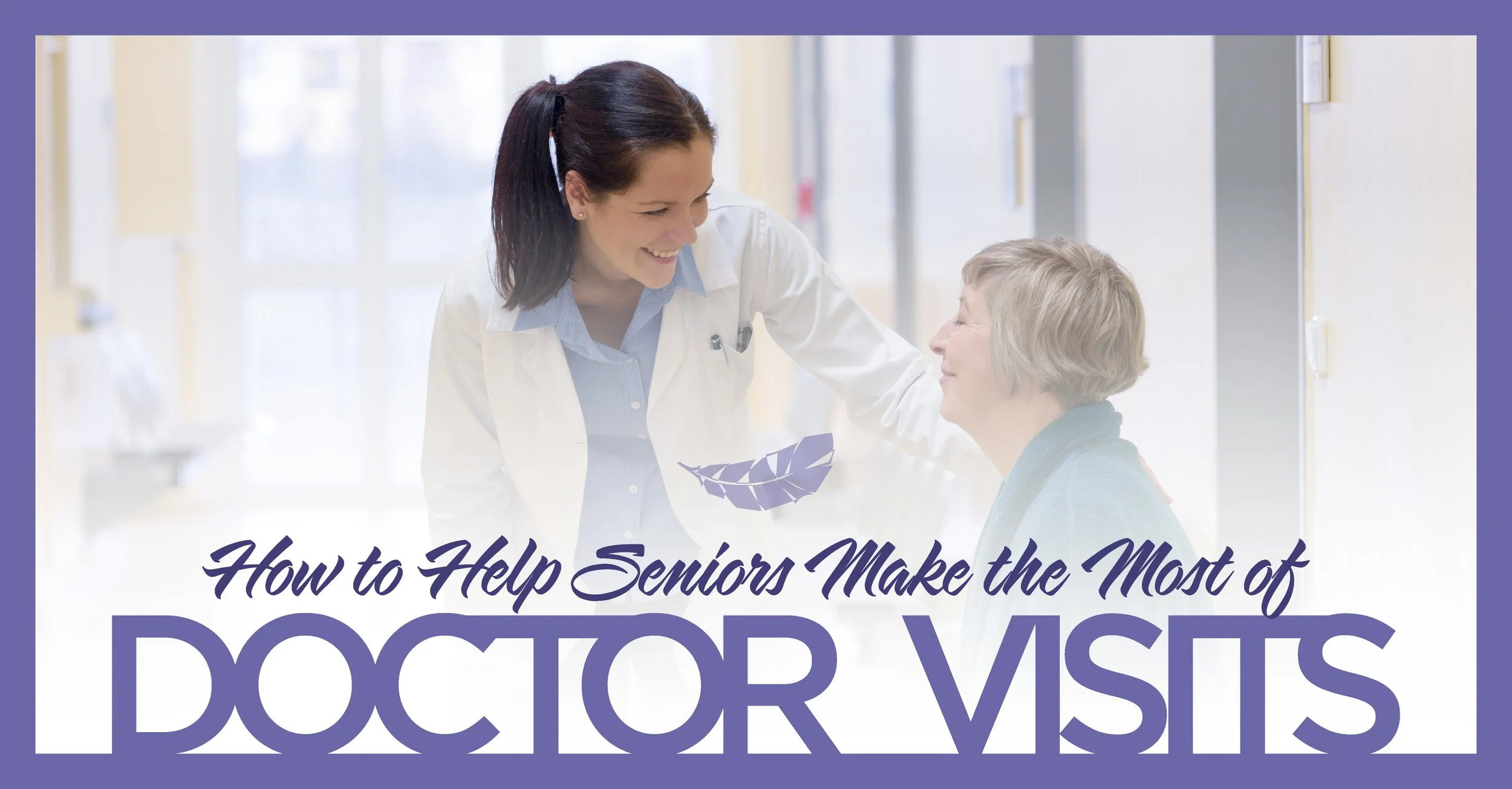The holidays are often a time of celebration, family and excitement. But for individuals living with dementia and the caregivers who support them, the holidays can present new challenges. For an individual living with dementia, the holidays can present physical, mental and emotional factors that may disrupt their day-to-day activities.
Helping Seniors Fight Loneliness During the Holidays
The holiday season can exacerbate seniors’ feelings of loneliness. This can cause health problems and affect their quality of life. Persistent loneliness can have the same health impact as smoking 15 cigarettes a day. Since loneliness can exacerbate health issues and increase the risk of mortality, it is especially important to combat isolation and feelings of loneliness during the holidays.
Nine Things to Look for When You Visit Your Senior Parents this Holiday Season
It can be hard to tell how your senior parents are really doing at home when you don’t live near them. It’s one thing to talk on the phone or video chat, but going home for the holidays gives you a chance to check-in on their well-being while you catch up with everyone. Pay attention to the following signs when completing an Activities of Daily Living (ADLs) Assessment to determine if your senior loved ones are in need of assistance.
Healthy Habits for Seniors
Finding the Right Caregiver
57% of seniors over age 70 do not find it very easy to live alone. Many need assistance with some daily tasks. If your parent is one of them and plans to age in place, it’s time to hire a caregiver. There are several steps to take to ensure your loved one receives the best care (AARP).
Protecting Seniors' Dental Health
THE IMPORTANCE OF SENIOR DENTAL HEALTH
Dental care is about more than cosmetics. Dental health affects overall health. As a result, it’s important for seniors to take care of their oral health.
Oftentimes seniors think that dental care is no longer necessary, especially if they are using dentures. However, dental health is important to manage throughout the aging process.
Taking care of dental health while aging is essential. Help seniors manage their oral care by understanding the risks, complications, and needs they face.
COMMON DENTAL CHALLENGES AGING ADULTS FACE
While people of all ages are at risk of dental issues like cavities, there are several conditions that seniors are more susceptible to. Common dental challenges people face while aging include:
Dry Mouth: A condition in which the mouth doesn’t produce enough saliva, dry mouth affects the acid levels in the mouth. This can affect swallowing, digestion, and the teeth and gums negatively. Seniors are especially prone to this condition, especially if their medications list dry mouth as a possible side effect.
Root and Coronal Caries: The decay of the teeth, basic dental caries are often just called cavities. The decay can affect the roots of the tooth and the jawbone as well. Caries can be caused by poor oral hygiene, a poor diet, dry mouth, and more.
Periodontitis: Periodontitis is a gum infection and can cause inflammation and pain. It is often caused by poor oral hygiene or a buildup of bacteria in the mouth.
9 REASONS DENTAL HEALTH CARE MATTERS
Heart disease can be linked to gum disease
Poor oral hygiene can contribute to pneumonia
Periodontitis can exacerbate diabetes
Teeth darken without proper care
Gum disease can lead to tooth loss
Dry mouth poses digestive issues
Root decay can be painful
Teeth can move if others are lost and not replaced
Ill-fitting dentures can be painful and unhealthy
DISEASES THAT CAN AFFECT ORAL HEALTH
Special attention should be given to the dental health of seniors with diseases like:
Liver disease
Diabetes
Arthritis
Anemia
Osteoporosis
Autoimmune disorders
BEST TIPS FOR MANAGING SENIOR ORAL CARE
Most dental health problems seniors face are preventable with the right care. Unfortunately, there are many reasons that seniors do not maintain their oral health effectively. Common causes of poor oral hygiene among seniors include:
Decreased mobility
Impaired memory
Side effects of medication
Medical conditions that affect oral health
The best way to protect seniors’ dental health is to help them manage their oral care. Caregivers can help in various ways. Caregivers might:
Help with brushing or flossing
Set reminders to brush or floss
Encourage seniors to use mouthwash
Schedule regular dental cleanings
Offer transportation to the dentist
Urge seniors to talk to their doctor if medications are causing dry mouth
Simple strategies like these can help seniors avoid dental health problems. This can enable seniors to keep their natural teeth longer and to enjoy regular diets instead of having to switch to soft food due to tooth decay.
At EPAGA Home Care, our caregivers are thoroughly trained in providing care to seniors and those with disabilities, including making trips to the dentist’s office effortless.
For more information on how we can assist you or your loved one with services like visits to the dental cleanings, please visit our services page at the link below.
Preventative Health Strategies for Seniors
Preventative strategies can help seniors live healthier lives with fewer risks. 60% of older adults manage two or more chronic conditions. Some conditions that affect seniors are preventable; others aren’t but may be improved if they are recognized early enough.
There are several preventative strategies seniors can use to protect their health and reduce their risks, including certain medical tests. It’s important for seniors to have these screenings performed.
How to Help Seniors Make the Most of Doctor Visits
Getting to a doctor visit, as well as understanding and implementing medical advice, can be a challenge for seniors. Aging involves changes in health, physical ability, and medical risks. On average, older adults in the US tend to be in a healthcare setting about 17 days a year. Given how common (and often necessary) it is for seniors to interact with doctors, it is important to help seniors navigate doctor visits well.








